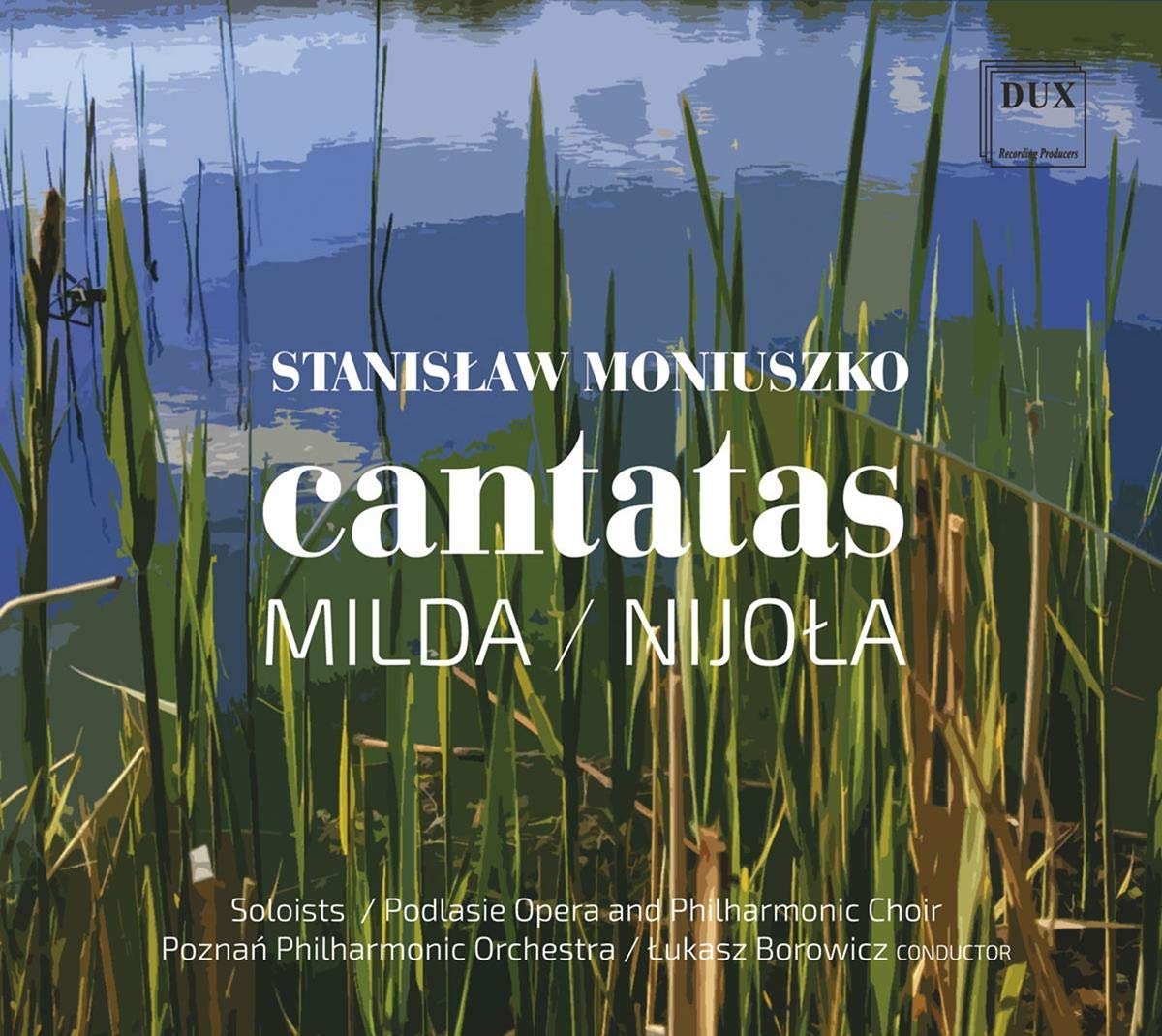MONIUSZKO Milda. Nijoła
View record and artist detailsRecord and Artist Details
Genre:
Vocal
Label: Dux Recordings
Magazine Review Date: 05/2020
Media Format: CD or Download
Media Runtime: 79
Mastering:
DDD
Catalogue Number: DUX1640-01

Tracks:
| Composition | Artist Credit |
|---|---|
| Milda |
Stanislaw Moniuszko, Composer
Ewa Wolak, Mezzo soprano Łukasz Borowicz, Conductor Maria Jaskulska-Chrenowicz, Soprano Poznan Philharmonic Orchestra Robert Gierlach, Baritone Sylwester Smulczyńsk, Tenor Szymon Kobylinski, Bass Wioletta Chodowicz, Soprano |
| Nijoła |
Stanislaw Moniuszko, Composer
Łukasz Borowicz, Conductor Podlasie Opera and Philharmonic Choir Poznan Philharmonic Orchestra Robert Gierlach, Baritone Szymon Kobylinski, Bass Wioletta Chodowicz, Soprano |
Author: Ivan Moody
These are the very first recordings on CD of two cantatas by Moniuszko on themes taken from part of the Lithuanian national epic poem, the Witolorauda. While Moniuszko was an outstanding opera composer, he realised that these themes needed to be dealt with in another way – according to a letter by him quoted in the accompanying booklet, the cantata held ‘infinite superiority over opera’. Such a view might these days be thought decidedly eccentric, but the mythological world evoked in the texts for these works is probably more than the stage could cope with. As it is, the listener’s imagination is allowed to roam free.
Moniuszko is a composer of great dramatic power: the evocation of the spring night with which Nijoa opens would be enough to convince one of that. This is Slavic mysticism at its best: the composer was born in what is now Belarus, then part of the Polish-Lithuanian Commonwealth, and all these cultures were thus part of his common heritage. In addition, not only did his practical activities lead him to conduct works by Mozart, Beethoven, Spontini, Mendelssohn and others but he knew Glinka, Dargomizhsky, Balakirev and Mussorgsky. A better pedigree could, apparently paradoxically, hardly be imagined for a Polish nationalist composer.
The music is extremely powerful: Moniuszko was not only a master of the orchestra – the way the piano is incorporated into the orchestra in Nijoa, for example, is original and quite remarkable – but a fine melodist (I urge the curious listener to seek out his opera Halka, while two further examples are reviewed on page 92). This means that he is able to bring the remoteness of Lithuanian legends vividly to life: there is an urgency to his writing, and a sureness of pacing, throughout these two works. And the performances are wonderful – soprano Wioletta Chodowicz in particular, the eponymous lead in both works, has a fabulous richness of timbre combined with great agility, but all the soloists are outstanding. The orchestra is fleet of foot and richly sonorous, and the recording excellent. Moniuszko is long overdue for wider recognition.
Discover the world's largest classical music catalogue with Presto Music.

Gramophone Digital Club
- Digital Edition
- Digital Archive
- Reviews Database
- Full website access
From £8.75 / month
Subscribe
Gramophone Full Club
- Print Edition
- Digital Edition
- Digital Archive
- Reviews Database
- Full website access
From £11.00 / month
Subscribe
If you are a library, university or other organisation that would be interested in an institutional subscription to Gramophone please click here for further information.




